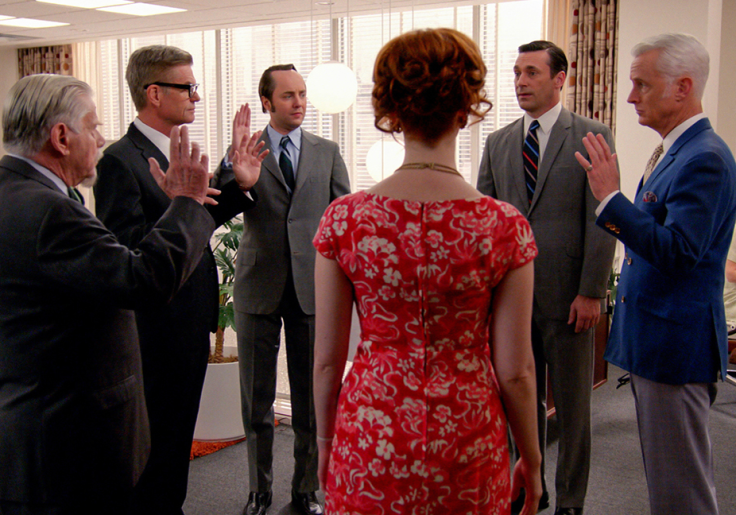How 'Mad Men' Changed The Game: What Do The Final Episodes Mean For The History Of Television?

“The end of an era” – AMC is making no bones about the fact that it thinks the final episodes of “Mad Men” are the end of something big, christening the second half of the seventh season with that rather bold tagline. The end of “Mad Men” is certainly significant – one of the most anticipated finales in television history – but what exactly is ending when the acclaimed show makes its exit this spring?
A quick look at the current television landscape – where high-octane shows like “Scandal,” “Game of Thrones” and “House of Cards” dominate the ratings and Internet chatter – might lead one to conclude that perhaps the close of “Mad Men” signals an end to an era of slow-paced character dramas. Following in the footsteps of “The Sopranos,” “Mad Men” steered a wave of shows – “Boardwalk Empire,” “Downton Abbey,” “The Killing” – that were short on spoilers, but bursting with character development. Many of those series are gone already or on their way out.
But Alan Sepinwall – Hitfix TV critic and author of “The Revolution was Televised” – says there are plenty of shows picking up the character-driven torch. Sepinwall lists Sundance TV’s “Rectify,” Netflix’s “Bloodline,” Amazon’s “Transparent" and FX’s “The Americans” (his pick for the best show currently on television) as shows that put character first in their patient, measured stories.
So what, then, does the finale of “Mad Men” mean for television at large?
“It’s the end of one of the best shows ever made,” Sepinwall told International Business Times. “It’s the last link to that 'Sopranos' time when everything started to change.”
The change Sepinwall refers to is the moment HBO’s “The Sopranos” suddenly made television a home for the high-minded viewer – as Sepinwall explains in his book. “Mad Men” creator Matthew Weiner served as an executive producer on “The Sopranos” and if “The Sopranos” changed the game – bringing cinematic quality to television – then “Mad Men” made it okay for everyone to play.
“Look at the TV being made around 2007," the year “Mad Men” debuted, says Sepinwall. “There was not a lot of great stuff.”
“Mad Men” was the first truly successful drama to emerge outside of network TV – or HBO – and the show’s incredible success -- winning the Emmy for outstanding drama for each of its first four seasons – opened the door for the rest of basic cable and, eventually, streaming services like Netflix to take a stab at daring original content. “Mad Men” is the evolutionary link between a time when the best television dramas could be counted on one hand and the current state of the industry – where dozens of shows contend for critical acclaim, awards recognition, and, above all, viewers.
Over the past few years, the ratings for “Mad Men” have dipped and a show that was once expected to win the Emmy every year has struggled to even score nominations at times.
“[‘Mad Men’] stopped being the watercooler show several years ago,” says Sepinwall.
However, the place of “Mad Men” in television history has been cemented – no wonder statues are being erected in its honor. If you cannot keep track of all the shows you want to watch today, you have “Mad Men” to thank -- the end of an era, indeed.
Watch the trailer for the final episodes of "Mad Men" below:
The final episodes of "Mad Men" premiere on AMC on April 5. Tweet your thoughts to @Ja9GarofaloTV.
© Copyright IBTimes 2024. All rights reserved.






















